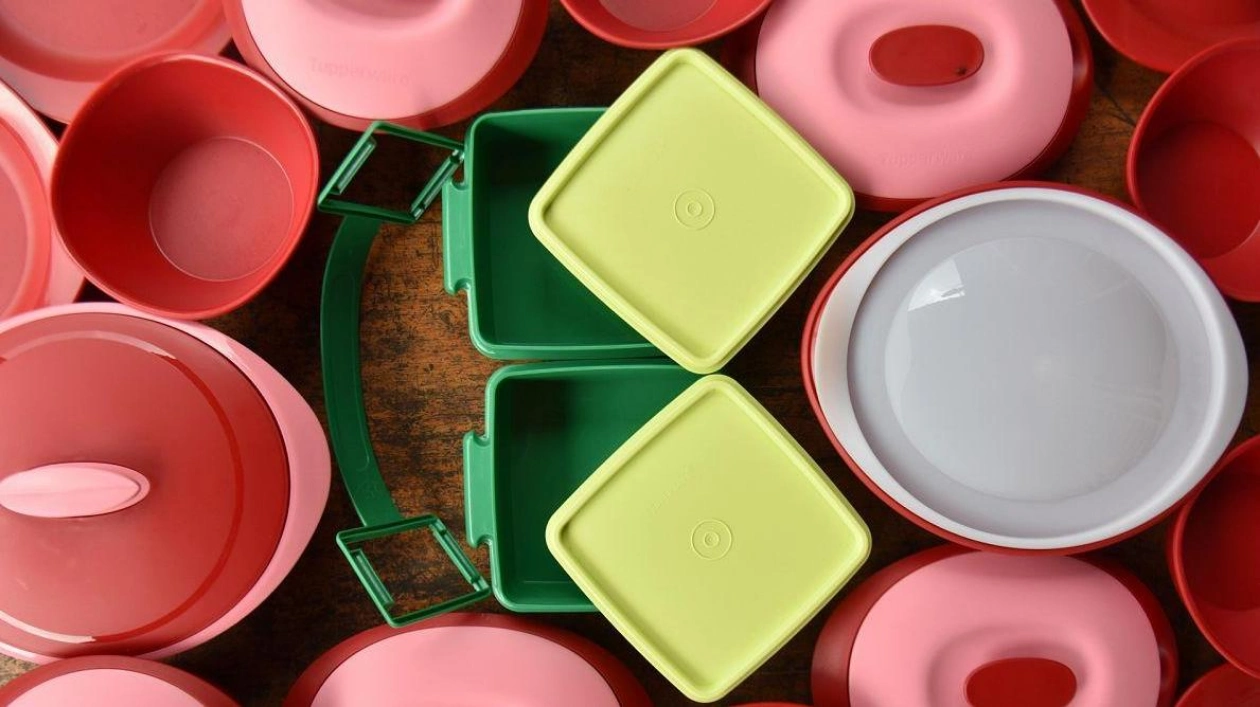Tupperware, the iconic brand that revolutionized plastic kitchen storage, has filed for bankruptcy in the US. This could mark a somber conclusion for a company whose products were ubiquitous in the 20th and 21st centuries, as Tupperware Brands faced dwindling sales and fierce competition. The Florida-based company announced its intention to file for Chapter 11 bankruptcy after failing to secure a viable takeover option amid financial difficulties. Tupperware was established by Earl Tupper in 1942, who introduced his first plastic container to the market in 1946. The brand's success was largely due to Earl Tupper's innovative marketing strategy of encouraging 1950s housewives to host Tupperware Parties to sell products to friends and family. One of the most successful hosts of these parties was Brownie Wise, a divorcee who not only promoted the brand but also assembled a sales team to push the products on her behalf. Wise was appointed vice president of Tupperware Home Parties in 1951 and persuaded Tupper to remove the products from stores entirely. She then founded Tupperware Parties Inc and coined the slogan “No Sex, No Sup, Just Tup-Tup-Tup!”. Wise had previously worked for Stanley Home Products, which pioneered the direct sales party plan methodology. This marketing concept was later adopted by companies like Avon and Ann Summers to encourage women to sell products such as makeup and sex toys to their personal networks. Tupperware's popularity led to its expansion into Europe, where its products quickly became household names worldwide. Consequently, the brand became synonymous with all plastic food containers, much like Kleenex, Xerox, Hoover, Coca-Cola, and Velcro did for their respective products. However, despite its strong brand recognition, the direct sales model lost its appeal in the 21st century. In 2003, the company shut down its operations in the UK and Ireland due to consumer dissatisfaction with the marketing model. Although sales improved during the Covid-19 pandemic, it wasn't enough to save the company. As consumers increasingly opted for lower-cost alternatives, Tupperware's fate seemed sealed. The company's downfall was partly due to the high quality of its products; once purchased, consumers didn't need to buy replacements for a long time. Additionally, the growing public aversion to plastic goods in favor of more environmentally friendly materials meant that the higher-end market also moved away from the brand. Tupperware reported total debts of over $1.2 billion (€1.1 billion) and total assets of $679.5 million (€608.2 million).

Text: Lara Palmer
20.09.2024
Iconic plastic kitchen storage brand faces financial struggles and market shifts





